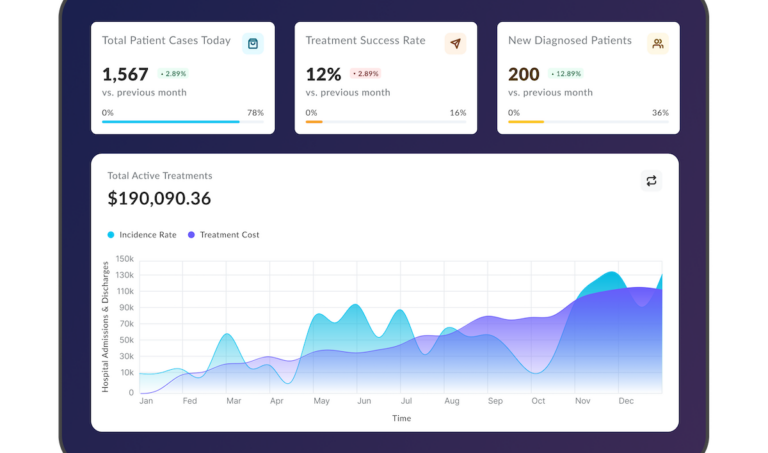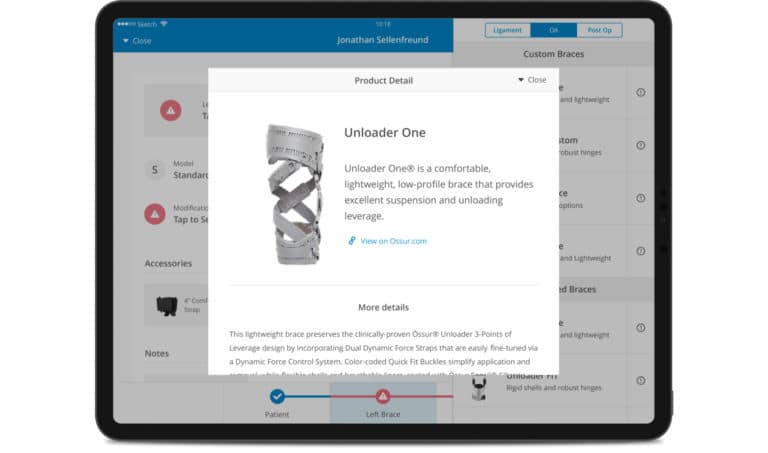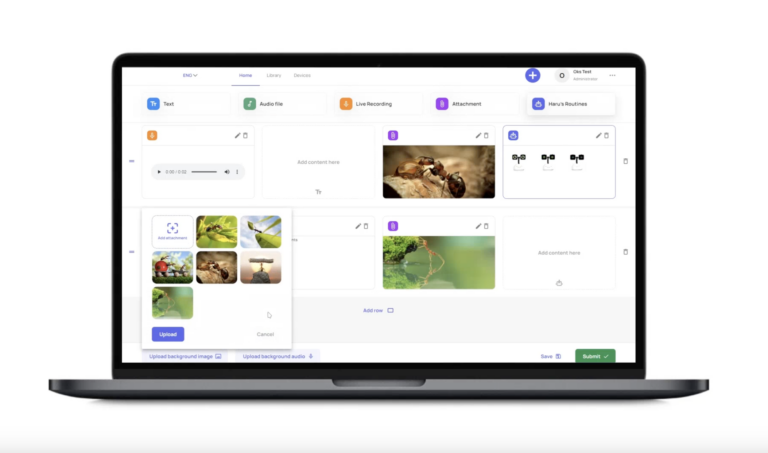Future of AI in Healthcare: Innovations Changing Lives
Updated: June 4, 2025
Just as penicillin reshaped medicine in the 20th century, AI is poised to be the game-changer of the 21st. The applications of artificial intelligence we see today already go beyond simple automation, nurse chatbots, and disease prediction. Taking on a task to predict the future of AI in healthcare, first, we need to understand what this technology has already done and what positive effects it has brought.
Delivering AI development services for quite some time, we’ve witnessed how this new ‘digital drug’ helps healthcare professionals do more and do it better. There is no doubt artificial intelligence is at the forefront of healthcare revamp. But since people tend to overestimate both the potential and dangers of technologies, we want to clarify what AI does for the medical industry today and what we can expect from it tomorrow.

We provide companies with senior tech talent and product development expertise to build world-class software. Let's talk about how we can help you.
Contact usTable of Contents
Early Use of AI in Healthcare
The seeds of big data and artificial intelligence in healthcare were sown back in the 1970s with the development of MYCIN, an AI program designed to suggest treatments for blood infections. Fast forward to 1979, and the formation of the American Association for Artificial Intelligence became the point for rapid progress of AI trends in healthcare.
Remember the excitement when AI first assisted in interpreting complex medical images? Or when it streamlined patient data management? Throughout the 1980s and 1990s, the landscape of medical care has seen humble yet impactful steps thanks to artificial intelligence. New systems not only sped up data collection and processing but also brought precision to surgical procedures and diagnostics. Clinicians also discovered the possibilities of smart technology in deep DNA research and mapping, which gave a powerful impetus to solving the complexities of genetic disorders. Not directly, but artificial intelligence also contributed to more comprehensive electronic health records, streamlining administrative tasks and patient data management.
The AI Revolution
Starting from the 2000s and especially over the past decade, artificial intelligence in health informatics experienced what can only be described as exponential growth. This surge is rooted in three key developments. First, there’s been progress in computing power, which has become affordable and accessible to every hospital and clinic. Then, consider the explosion of ‘big data’ – from texts and videos to complex scientific data – all fueling AI’s capabilities.

But the most exciting development lies in the substantial progress of AI algorithms themselves. We’ve witnessed the rise of deep learning algorithms, natural language processing, and architectures that have changed the game. Think of convolution neural networks, advanced NLP models, and the latest buzzword – transformers, which led to the emergence of generative pre-trained transformers (GPTs) like well-known ChatGPT. All these advances formed current AI in healthcare trends and enabled automation in healthcare to reach new heights. And the first big consequence of this today is that medical systems can deliver truly proactive healthcare.
Key Areas of AI Integration in Modern Healthcare
Before we get on to predicting the future of AI in healthcare, let’s take a closer look at the current uses of artificial intelligence in medicine.

Diagnostic Assistance
Doctors usually use radiology tests to make a diagnosis. However, some subtle anomalies can go unnoticed even by the most experienced and skilled healthcare professionals. Imaging tools powered by artificial intelligence and trained on extensive medical imaging datasets are now capable of detecting diseases from X-rays, MRIs, and CT scans with exceptional precision. DeepMind by Google wowed the medical community with its accurate detection of eye conditions using retinal scans. Similarly, in pathology, AI is being used to identify cancerous cells in tissue samples, often at early stages where human diagnosis is more challenging.

Predictive diagnostics is another thrilling frontier, revolutionizing healthcare. Leveraging the sheer scope of big data, AI skillfully navigates through patient health data and clinical studies to pinpoint future health risks well before patients show any troubling signs. Clinicians use these capabilities to predict the onset of diabetes and heart conditions to intervene earlier with personalized treatment plans and lifestyle advice that can help patients avoid getting sick at all. The future of AI in medicine will certainly move and progress in this direction.
Treatment Optimization
Conventional drug treatments, designed on a ‘one-size-fits-all’ model based on broad population averages, often overlook the subtle yet significant genetic variations among individuals. This 0.1 percent difference in our DNA, though seemingly small, is enough to render these treatments less effective, or even ineffective, for some people. Moving away from conventional approaches, AI trends in healthcare bring personalization to treatment planning, taking into account the biological and genetic differences of each patient.

Artificial intelligence can also solve the key difficulty that has historically stood in the way of drug discovery – forecasting any factors that may influence the therapeutic safety and efficacy of medication. It can expedite drug development manyfold by finding the most suitable components within days and modeling how they will interact with other components and the human body. For instance, the AI analysis for developing a treatment for the Ebola virus took only one day, a task that would have taken months or even years without this technology.
Administrative and Operational Efficiencies
Did you know that a staggering 30% of healthcare spending goes towards administrative costs? This includes medical billing, insurance management, and overall facility administration – areas ripe for AI intervention. Intelligent technology can automate many of these tasks. From record-keeping to patient scheduling, billing, and handling insurance pre-authorizations, artificial intelligence is taking the load off medical staff’s shoulders.
Currently, numerous healthcare organizations are creating AI systems not just for administrative tasks but also for clinical decision support. It lets clinicians accelerate decision-making, spend less time on coding for billing, and devote more time to their patients. In fact, routine administrative tasks can consume up to 70% of a practitioner’s time, according to McKinsey. AI can minimize or completely remove administrative tasks from professionals’ agendas to reclaim time to focus on what really matters – caring for patients. And future of AI in healthcare will be tightly related to automating even more routine tasks and taking on ever-growing administrative burdens.
Remote Patient Monitoring
Many healthcare organizations now use artificial intelligence in their remote patient monitoring (RPM) systems as a tool to interpret thousands of data points patients create every day. With 23% of US healthcare executives recognizing AI’s effectiveness in improving clinical outcomes, as Insider Intelligence states, this is one of the current AI in healthcare trends. Modern wearable health devices and medical equipment may continually track patients’ vital signs (blood pressure, heart rate, glucose levels) and alert doctors to any deviation from the norm. A key strength of AI-driven RPM is the early detection of potential health issues.
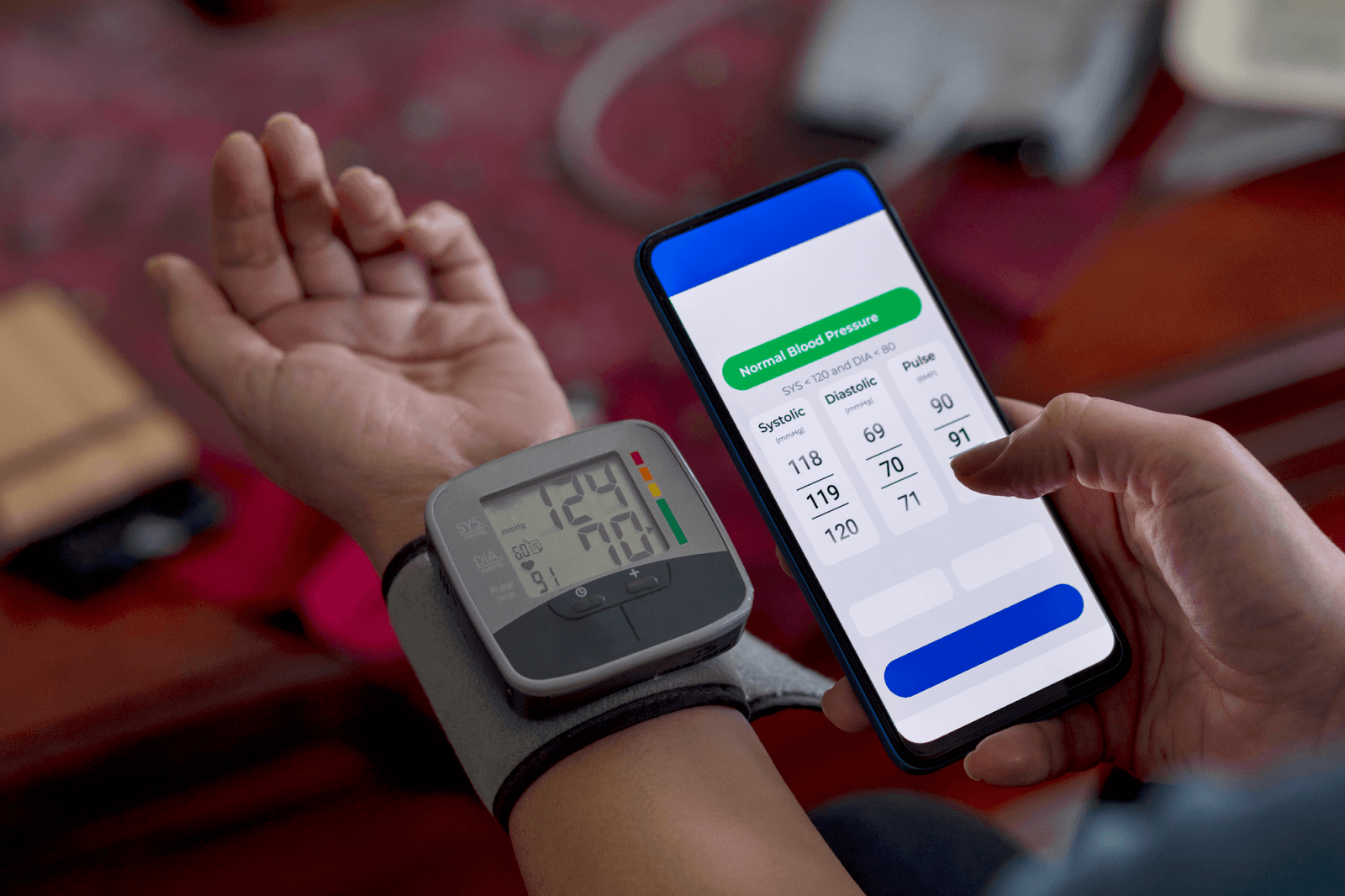
Offering more than patient care automation and day-to-day conveniences, hospitals can reduce readmissions by easily monitoring the conditions of high-risk patients remotely, thus minimizing emergency visits. This not only cuts down healthcare costs but can be a matter of life and death in emergency situations. One statistic says that 90% of hospitals will embrace artificial intelligence for RPM by 2025, setting the stage for a future of AI in healthcare brimming with huge possibilities.
The Road Ahead: Future Predictions and Possibilities
With the explosive growth of artificial intelligence technology, it makes sense to wonder what is the future of AI in healthcare. Shortly, the future of AI in medicine is wide open and bright. But what does it promise? We’ve deeply researched this topic and reviewed expert predictions to identify several promising future trends of AI in healthcare that are already on the horizon.
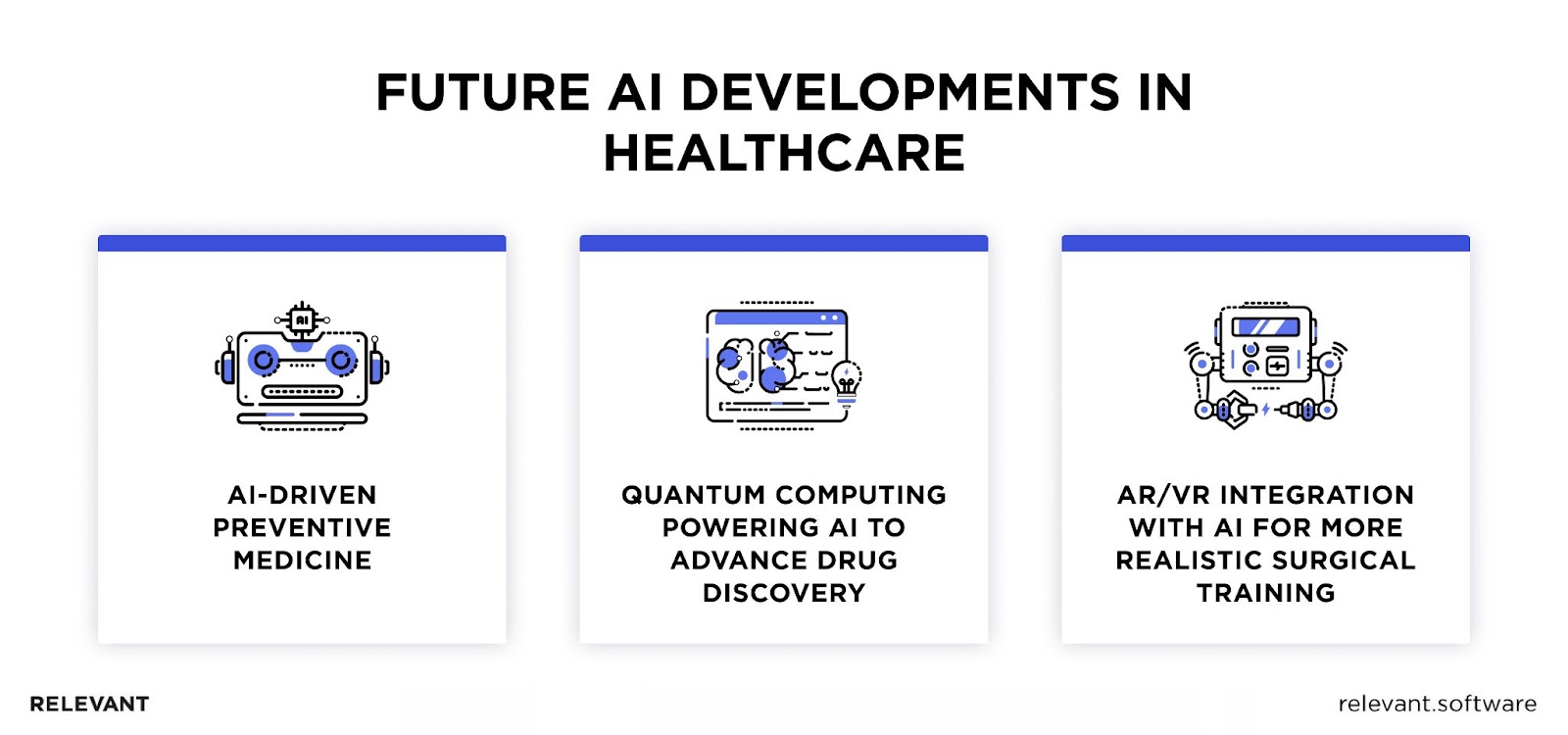
AI-Powered Preventive Care
Artificial intelligence holds great promise in preventive medicine in the future, a core principle of value-based care. Instead of relying on medical treatments to address health issues after they arise, AI-powered preventive healthcare will help patients adopt healthy habits and lifestyle changes to avoid illnesses. Using predictive and prescriptive analytics to examine patient data and consider all possible factors that can influence health outcomes, AI solutions can predict the onset of disease or the development of severe complications.
If we talk about the future of AI in healthcare regarding preventive care, this technology will also help doctors plan personalized prevention measures. After analyzing genetic data, clinical history, lifestyle factors, and other data, artificial intelligence will be able to give personalized recommendations about nutrition, exercise, and stress management. With the massive adoption of wearables and IoMT devices for health tracking, these recommendations can be even more personalized. Thus, artificial intelligence can help patients slow disease progression and avoid the development of new ones.
Integration with Augmented Reality (AR) and Virtual Reality (VR)
With AI’s ability to simulate human intellect and AR/VR’s capabilities to build virtual environments, hospitals can use these technologies to enhance training and telemedicine solutions. Imagine surgeons practicing complex procedures in a risk-free virtual environment honed by AR and VR simulations. When enhanced with AI, these virtual simulations of surgeries will help students practice realistic scenarios that improve learning outcomes.
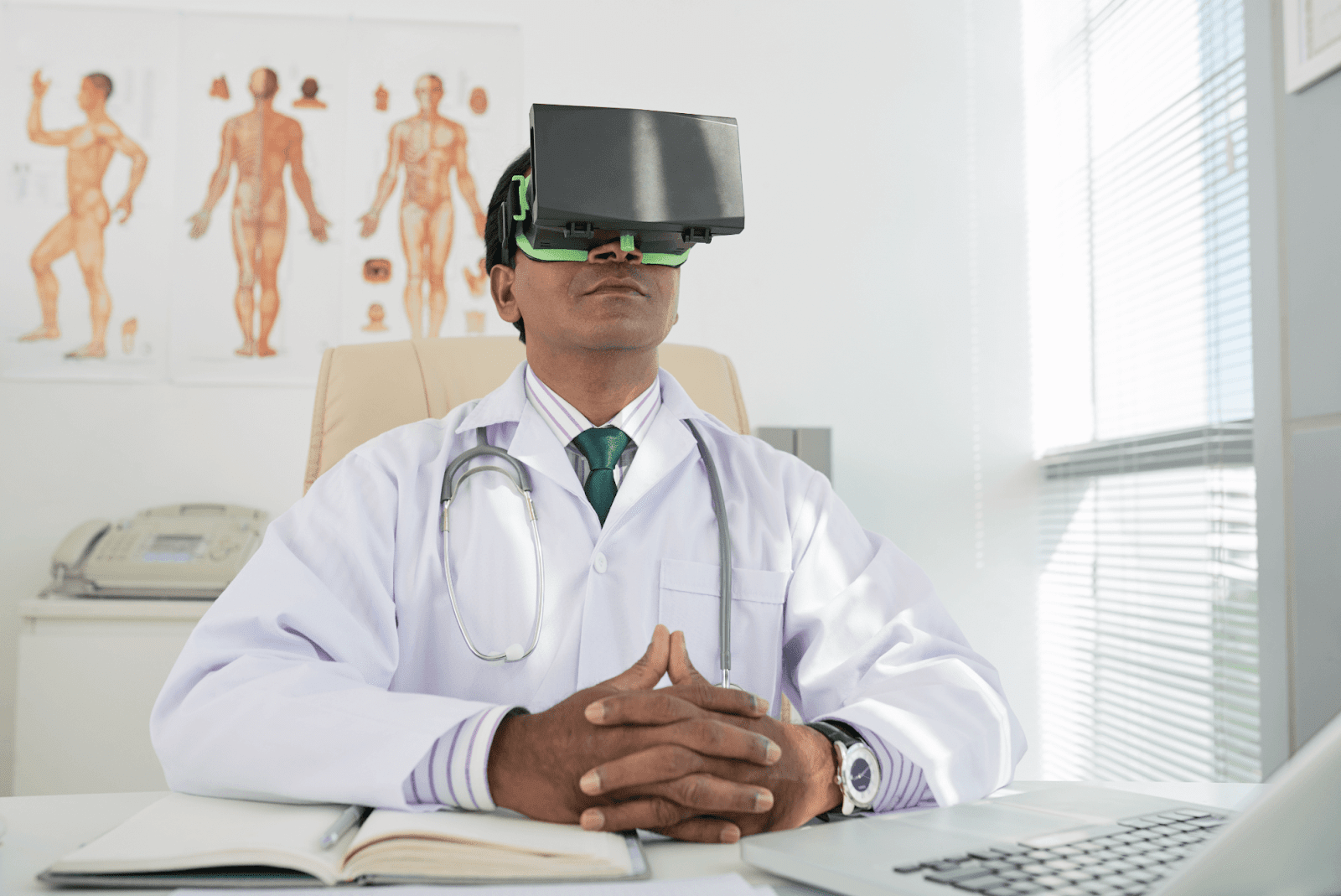
So, what is the future of medicine with VR/AR coupled with artificial intelligence? It will get a major makeover with doctors and patients, miles apart, connecting in a virtual space as if they’re in the same room. AI will analyze patient data in real time, offering personalized insights and recommendations during virtual consultations, bringing a new depth to remote healthcare. Doctors will be able to make medical analyses and develop treatment plans on the spot, making every online consultation more helpful and productive. This is the future of AI in healthcare that won’t take long to become true.
Quantum Computing and Healthcare
The blend of artificial intelligence with quantum computing and healthcare promises to open a new chapter in the future of AI in healthcare. Imagine a world where discovering new drugs doesn’t take years but days or even hours. That will be possible thanks to quantum computing power that will supercharge AI’s analytical skills to identify potential drug compounds and reduce trial and error. It will accelerate the drug development path from the lab to the patient and bring life-saving medications to market in record time.

Leveraging these cutting-edge technologies, health professionals and scientists are set to decode the subtleties of diseases that have baffled us until now. They’ll finally be able to model the biological systems of the human body, right down to the molecular level. While regular computers still have difficulties simulating interactions of even small proteins or drug molecules, quantum computers can easily sort through countless potential drug compounds. Looking into the future of AI in healthcare, this technology duo will make a giant leap in drug discovery.
Final Thoughts on the Future of AI in Healthcare
The applications we’ve reviewed are just a fraction of what the future of AI in medicine holds for us. It promises breakthroughs in drug development and 24/7 health monitoring. The future scope of AI in healthcare will drive much-needed improvement in preventive care and advances in imaging processing. But to truly harness the power of artificial intelligence, we need the right minds behind the technology.
If you’re looking for a tech partner who understands the intricacies of your field, consider Relevant Software, a healthcare software provider. Working with clients from the product ideation and design stage to technology deployment, our AI engineers use years of experience to build high-quality AI-powered systems for hospitals.
Our core services:
Do you want a price estimate for your project?
Do you know that we helped 200+ companies build web/mobile apps and scale dev teams?
Let's talk about your engineering needs.
Write to us